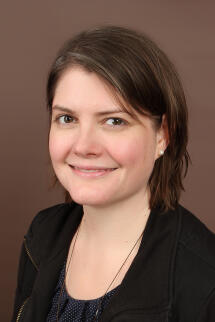Beth L. Lovelady


Bridging the Gap - Co-Production of Local Migrant Integration in the United States and Germany
According to The United Nations Refugee Agency (UNHCR), there are 70.8 million forcibly displaced people around the world(UNHCR, 2015).The responsibility of integration falls heavily on large cities and the with continued growth of migrant populations, cities are challenged to meet the needs for housing, employment, safety and health (Department of Economic & Social Affairs, 2015; International Organization for Migration, 2015; Katz et al., 2016b).
There is evidence that some cities have responded to these challenges with innovative integration policies that may be applicable to other cities or scalable to the state and national level (Graauw, 2016; Katz et al., 2016a). It is also clear that these cities do not do this work alone. In the United States and Germany, nonprofit organizations (NPOs)are an integral part of bridging the gap between government and migrants (Graauw, 2016; Ramakrishnan & Bloemraad, 2008).
This research will investigate the impact NPOs have on integration policy in the United States and Germany. What role do nonprofits play in development and implementation of integration policy at the local level? In what context did these organizations form and develop? How have the relationships these organizations have to government changed over time?What strategies do these organizations use to influence policy? What were the similarities and differences in the co-operative relationships and strategies employed in each country?
Public sector service provision faces ever more complexity both from the need to the manage multiple-level governance and growing budget deficits (Howlett, Kekez, & Poocharoen, 2017; Sicilia, Guarini, Sancino, Andreani, & Ruffini, 2016). The theory of co-production is recognized by scholars as a good tool to manage this complexity (Bode & Brandsen, 2014; Howlett et al., 2017; Pestoff, 2012; Sicilia et al., 2016; Vaillancourt, 2012b; Verschuere, Brandsen, & Pestoff, 2012).
This research will use Pestoff (2012) and Vaillancourt’s (2012b) theories of co-production to evaluate institutional interest in the co-production of migrant services and Coston’s (1998) model of government-NGO relationshipsas a framework for comparison. It will be done with a comparative case study (CCS) design. In following Barlett and Vavrus’ (2017b) CCS model, the research will include a horizontal comparison of institutional interest in co-production and instances of NPO-government co-operation of migrant services in the two chosen cities; a vertical analysis across local, state and national policy; and a transversal analysis of how policies and migrant services organizations have developed over time (Barlett & Vavrus, 2017b).
This study will utilize a mixed methods approach to investigate co-production of migrant integration in the policy fields of housing and education in Seattle, Washington and Cologne, North Rhine-Westphalia.It will include a review of existing literature on local integration, housing, and education policy in Seattle and Cologne and the history of migration and co-production in the United States and Germany. The cases will be based upon data gathered via 1) document review of materials including organizational reports, meeting minutes, policy documents and press releases and 2) interviews with relevant government representatives and nonprofit staff, members, and volunteers.
References
Beth Lovelady wird von Prof.'in Dr. Annette Zimmer, PD Dr. Matthias Freise und Steven Rathgeb Smith (Evans School of Public Policy and Governance) betreut. Sie ist Mitglied der Forschungsgruppe Zivilgesellschaft.
| 2019 | Research Associate, Institute for Political Science, University of Münster |
| 2011-2018 | Fund Development Director, Children's Alliance, Seattle, Washington USA |
| 2007-2011 | Development and Finance Director, Child Care Action Council, Olympia, Washington USA |
| 2005-2006 | Research Assistant, Nancy Bell Evans Center on Nonprofits & Philanthropy, University of Washington's Daniel J. Evans School of Public Affairs |
| 2005-2006 | Legislative Assistant, University of Washington Graduate and Professional Student Senate |
| 2002-2005 | Senior Account Executive, SparrowHawk Consulting, Olympia, Washington USA |
| 1997-2001 | Bachelor of Science, The Evergreen State College |
Forschungsinteressen
Lehraktivität